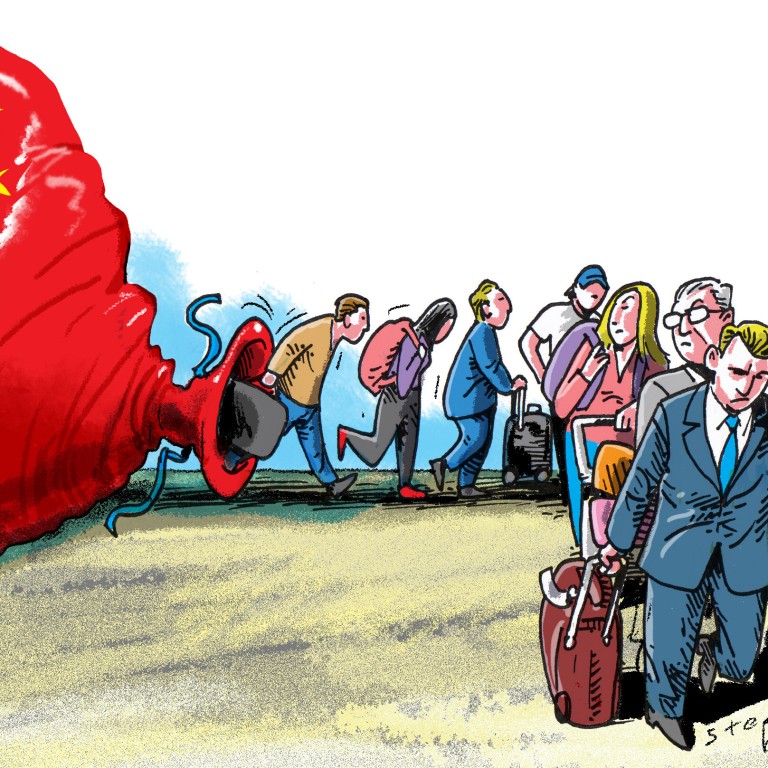
Expat exodus is bad for China, bad for the US and bad for the world
- Stringent pandemic policies and tax law changes are driving expatriates away, eroding business and diplomatic pillars
- With so many foreigners leaving, examples of good US-China people-to-people relations will become increasingly hard to find
In Shanghai, China’s international and commercial centre, the number of expatriates fell more than 20 per cent in the past decade from more than 208,000 to around 163,000.
The numbers are even more extreme in Beijing. The number of foreigners has fallen by more than 40 per cent since 2010, to about 63,000. By comparison, Luxembourg has around 630,000 total residents, almost half of whom are foreign workers.
Several reasons lie behind the drop. As China’s labour force has developed and improved, more companies are replacing foreign managers with locals. This is to be expected.
While China’s rapid economic development can be attributed to the hard work and entrepreneurial spirit of the Chinese people, it is also true that opening to the outside world played an important role. By allowing in foreign capital, ideas and management expertise, China accelerated its transition into one of the world’s most important and advanced economies.
The pandemic is a big part of the problem. China’s virus containment efforts have been effective from a public health standpoint, succeeding through a mixture of self-discipline, community cooperation and wide use of rapid testing and contact-tracing protocols.
Getting business executives and their families in and out of China has been frustratingly difficult since the pandemic began. Recent anecdotal evidence indicates there has been some relaxation of this policy, but there is still a burdensome application process and lengthy quarantine. All this results in far fewer foreigners willing to work in China.
It is practically impossible for foreigners to send their children to public schools that require a high level of Mandarin and teach a different curriculum from schools in the West. This leaves expensive international schools as the only real option. The impact on both foreign companies and their international employees will be profound.
China’s expats say living there good for careers, but quality of life is low
According to another AmCham survey, 36.1 per cent of companies with annual revenues of more than US$100 million said they would consider moving all or part of their facilities out of China if the new tax policy was implemented. What could prove a boon for countries such as Singapore will be a loss for China.
Rethinking the tax change or tapering it over several years would give companies time to adjust. However, these changes alone will not address some of the deeper factors eroding confidence in China as an international business centre.
Without these important voices, foreign businesses lack the information necessary to make informed investment choices or business decisions. Seasoned China reporters now based in Singapore, Seoul and elsewhere can only report on China for a while before their on-the-ground knowledge of the country goes stale.
Almost 50 years ago, the United States and China signed the Joint Communique, setting the two countries on the path to normalisation of diplomatic relations in 1979. Normalising relations brought immeasurable benefits to China, the US and the entire world, advancing the cause of peace.
Today, people-to-people exchanges between the US and China are on the wane, reversing momentum towards better mutual understanding.
Even as government-to-government relations continue to decline, it is often said that the people of our two nations have no quarrel with each other. With so many foreigners leaving China, examples of good people-to-people relations will become harder to find.
Ker Gibbs is president of the American Chamber of Commerce in Shanghai



